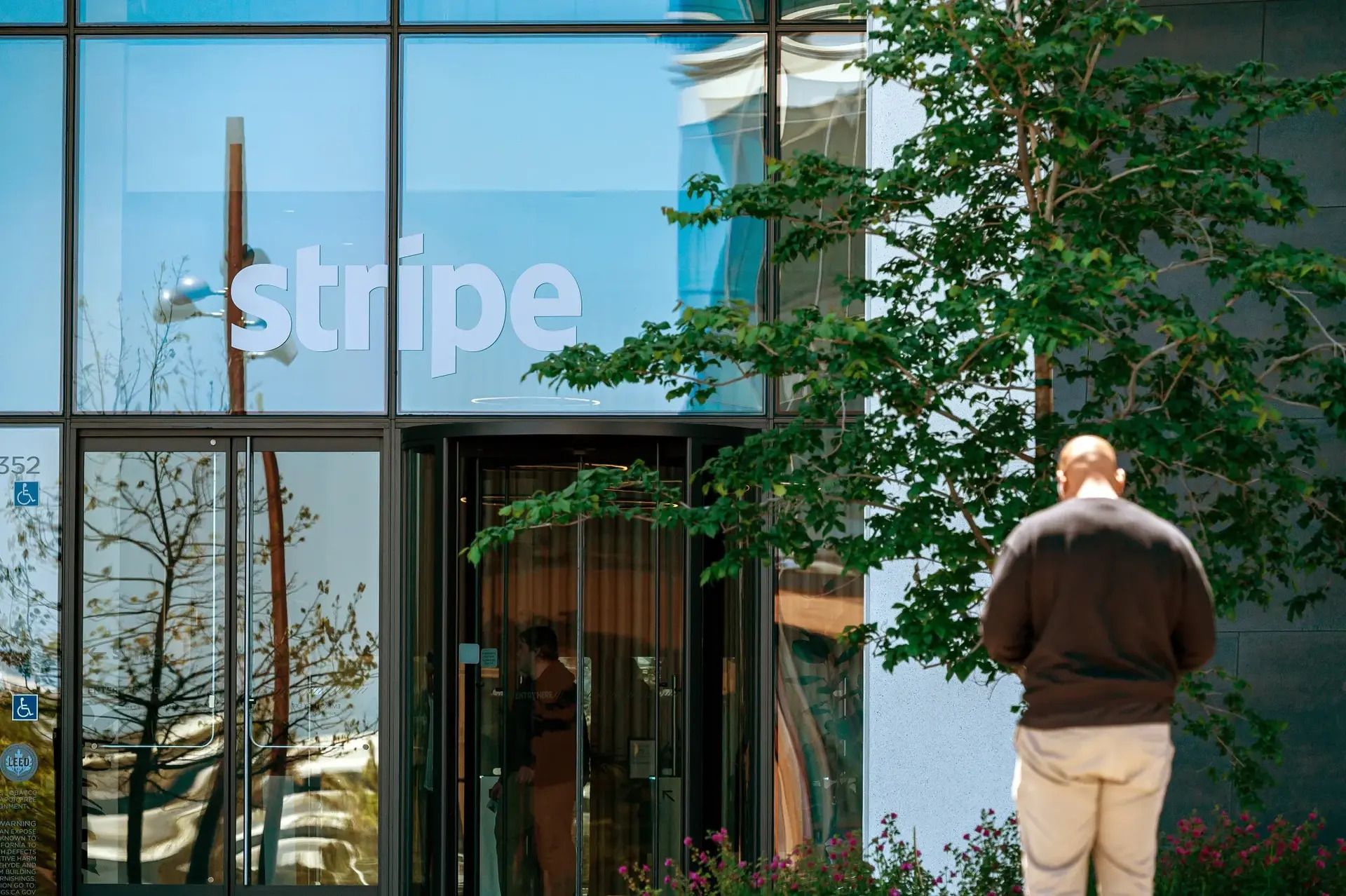- Money Explored
- Posts
- 🚀 Robinhood Joins S&P 500
🚀 Robinhood Joins S&P 500
Fintech’s eating the world—don’t get left behind in 2025! If you haven’t already, check out our FREE Spot The Next Big Fintech Guide
Hey Fintech Explorers—Welcome back to Money Explored, your essential Sunday newsletter to stay ahead in fintech!
This week, markets and regulators are colliding head-on, sparking power plays that could redefine the future of finance.
Here’s what we’re diving into:
Robinhood rockets into the S&P 500, cementing fintech’s place on Wall Street. 🚀
Stripe fires back in the battle over bank data fees. 💥
OnePay makes a bold leap into wireless, chasing the super-app dream. 📱✨
Plus: A digital banking debut in Europe, a partnership rewriting how lenders assess credit, and more fallout from a scandal that left millions stranded.
It’s all happening—and that’s just the start…
First time reading? Sign up here to join 10,000+ readers staying ahead in fintech every Sunday.
Let’s dive in!
🌎 3 Major Stories
Dive into this week’s top Fintech developments.
Robinhood Joins S&P 500: A Fintech Milestone! 🚀

Picture Credit: Andrew Kelly / Reuters
The Big Story 📰: Robinhood Markets, the pioneering retail trading platform, is set to join the S&P 500, replacing Caesars Entertainment in a major shift for the fintech landscape. Announced by S&P Dow Jones Indices, this move highlights Robinhood's transformation from a pandemic-era challenger to a key player in U.S. financial markets. In addition to boosting demand for its stock as index funds readjust, the inclusion reflects broader market credibility and may attract more institutional investors. Alongside Robinhood, marketing platform AppLovin and construction firm Emcor are also entering the S&P 500, signaling a significant reshuffle within the index that typically accompanies positive stock price movements for the companies involved.
Key Takeaway ⚡️: Robinhood's inclusion in the S&P 500 is an essential milestone for the fintech sector, emphasizing the platform's growing influence and stability in a competitive market. This change is likely to generate increased interest from institutional investors, enhancing its reputation and market credibility. For fintech enthusiasts and professionals, it signifies a broader acceptance of innovative financial models, paving the way for other companies in the space to gain similar recognition. With Robinhood's stock surging and its market cap exceeding $91.5 billion, this moment creates opportunities for other fintech startups to aspire to similar achievements and capture market attention.
Stripe Takes Stand Against JPMorgan's Data Fees 💥

Picture Credit: David Morris / Bloomberg
The Big Story 📰: Stripe Inc. has made headlines by being one of the first fintech companies to urge the US Consumer Financial Protection Bureau (CFPB) to take swift action against banks like JPMorgan that propose charging fees for access to customer financial data. In comments filed with the CFPB, Stripe expressed concerns that permitting such fees could lead to significant market damage and harm to consumers while the bureau finalizes rules regarding data sharing. The fintech firm has proposed options for the CFPB, including potential enforcement actions against banks that impose these fees. This situation is intensifying as the CFPB seeks to reshape its rules, following pressure from both fintech advocates and banking groups.
Key Takeaway ⚡️: Stripe’s appeal to the CFPB marks a pivotal moment in the ongoing struggle between fintech companies and traditional banks over customer data access. For fintech enthusiasts and industry professionals, this development highlights the importance of regulatory clarity in the fintech sector. If JPMorgan’s proposed fees are allowed, it could set a troubling precedent that hampers fintech innovation and impacts millions of consumers negatively. Stakeholders should closely monitor the CFPB's reactions and proposed regulations, as the outcome could redefine the competitive landscape and shape the future of open banking in the U.S.
OnePay Joins Fintech Wireless Craze 📱✨

Picture Credit: Bloomberg
The Big Story 📰: Walmart-backed fintech OnePay has ventured into the wireless market by launching OnePay Wireless, a prepaid mobile service priced at $35 for a 30-day cycle. This move aligns with a growing trend among fintech companies, like Klarna and Nubank, aiming to consolidate a variety of services into a single app experience for consumers. With unlimited talk, text, and 5G data offered through AT&T and mobile hotspot capabilities, OnePay is seeking to enhance user convenience. This project leverages Gigs, a platform that allows businesses to operate as mobile virtual network operators (MVNOs), enabling easier entry into telecommunications without heavy infrastructure investments.
Key Takeaway ⚡️: OnePay's new wireless service marks a significant step in the evolution of fintech into "super apps," blending multiple financial and non-financial services. This development signifies the potential of fintech to reshape market dynamics, posing challenges for traditional telecom players and enhancing customer engagement through integrated offerings. As platforms like Gigs streamline the MVNO model, expect an uptick in competition and innovation in both fintech and wireless industries. Consumers will benefit from increased choices and convenience, as financial services become more seamlessly embedded in their daily lives. The move also reiterates Walmart’s long-term strategy to expand its financial reach and redefine customer experiences.
🔍 What Else We’re Watching
Keep an eye on these evolving Fintech Narratives.
JPMorgan's Chase Set for German Debut 🇩🇪: Jamie Dimon’s vision for digital banking hits a snag as Chase's UK launch fails to cement a robust lending profile. With a second quarter 2026 debut planned in Germany, Chase will introduce its first product—a savings account—nearly five years post-UK introduction. Despite securing £23 billion in deposits, loan offerings remain minuscule, with the majority of deposits sitting with JPMorgan. Competing against nimble state-backed lenders and a saturated market will be no easy task, but Chase’s deep pockets might cover some growing pains.
Chase Partners with Nova Credit for Smarter Lending 🤝: JP Morgan's Chase has teamed up with California's Nova Credit to elevate its credit evaluation processes and expand consumer access. By integrating Nova Credit's Cash Atlas, Chase can now gather more in-depth insights into financial health, analyzing trended data for a fuller consumer picture. Additionally, their Credit Passport allows immigrants to use foreign credit histories for US loans. This partnership builds on a relationship that began in 2017, ensuring Chase stays competitive in understanding diverse credit needs in a dynamic market.
Synapse Execs Charged! ⚖️: The Financial Industry Regulatory Authority (FINRA) has charged former Synapse Brokerage officers Jeffrey Stanley and Mark Paverman with misconduct, citing poor account management practices. The charges follow a Consumer Financial Protection Bureau investigation alleging Synapse mismanaged customers' funds and failed to maintain adequate records, resulting in a stunning shortfall of up to $95 million. Many customers still can't access their funds, leading to significant hardships. This scandal highlights urgent scrutiny in the banking-as-a-service sector as regulations are likely to tighten.
💸 Major Money Moves
Tracking big market shifts in Fintech this week.
Lead Bank Soars to $1.47B Valuation 🤯: Lead Bank, a seasoned Missouri lender reimagined for the fintech and crypto sectors, has just raised $70 million, catapulting its valuation to an impressive $1.47 billion—nearly double from last year. This fresh influx of capital aims to bolster its balance sheet and broaden its client base. Backed by heavyweights like Andreessen Horowitz and Khosla Ventures, the funding round also saw participation from existing backers Ribbit Capital and Coatue, along with newcomers Iconiq Capital and Greycroft. Lead Bank's innovative approach is set to redefine how traditional banking intersects with modern finance.
Kapital Hits Unicorn Status with $100M Raise! 🦄: Kapital, the Mexico City-based neobank, has officially become a unicorn after securing $100 million in a Series C funding round, skyrocketing its valuation to $1.3 billion. Co-led by Tribe Capital and Pelion Ventures, the latest financing will enhance its AI-powered financial ecosystem. Founded in 2020, Kapital offers a range of services for SMEs, including checking accounts and loans. With 300,000 customers across Mexico, Colombia, and the U.S., Kapital is well-positioned as Latin America's first AI unicorn, joining the ranks of other regional successes like Plata.
ModernFi Secures $30M for Banking Innovation 💸: ModernFi has raised $30 million in its Series B funding round, led by Canapi Ventures, aiming to fortify its standing as essential infrastructure in the U.S. banking sector. The investment reflects increasing institutional trust in ModernFi's capabilities to enhance deposit stability and liquidity management amidst evolving financial landscapes. With this new capital, ModernFi plans to accelerate adoption across financial institutions and improve integrations with digital banking services. The company's technology empowers banks and credit unions to streamline deposit management, ensuring long-term resilience and competitive advantage.
Thanks for reading and have a relaxing Sunday,
Derek,
Editor, Money Explored.